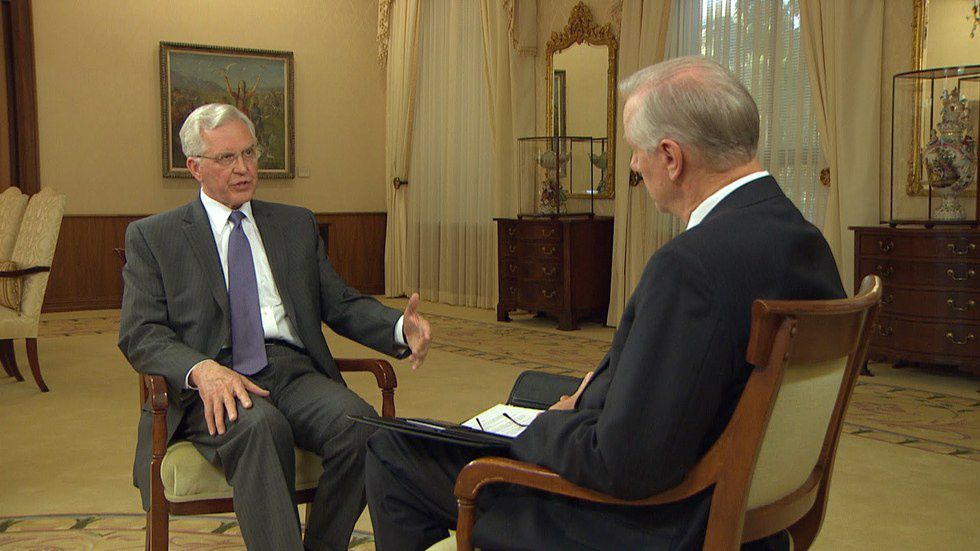Just last week, the Church of Jesus Christ of Latter-day Saints put out a new policy regarding the children of LGBT couples. The policy has caused quite an uproar among LDS LGBTs and some heterosexual members. Some see it as open discrimination against the LGBT community; I am here to tell you, quite frankly, that it is not against LGBTs, but for their benefit.
First, what exactly is this new policy? According to the church’s website, the new policy prevents children of LGBT families from doing two things:
- They are not permitted to receive a baby blessing
- They are not permitted to be baptized until they are 18 and live on their own and assent to the Church’s view on marriage between a man and a woman
The church’s purpose for the new policy is to protect the family. The baby blessing, according to an interview with Elder D. Todd Christofferson, puts the child’s name on record and then the child is under the direction of the local bishop, assigned home teachers, and is going to be sought after by members to come to church (see here).
Rather than risk contention in the home of the child, the church is choosing to step back and let the parents raise their children as they see fit. If this includes involving children in church activities, they are more than welcome; if it means that the children are never exposed to an LDS chapel, then the church is respecting the decision of the parents. Furthermore, the church is trying to save the family by letting them teach and uphold their family. Imagine if the child of a homosexual couple came home from church and told their parents, “In church today I learned that in order to keep the commandments, my mommies/daddies need to get a divorce.” How would that help the family? It wouldn’t, and that’s why the church is not putting that responsibility on a child from birth.
Before moving on the point two, I think it is important to recognize that the LGBT community is not being targeted unfairly here. The church has many policies that prevent the baptisms of people in delicate situations. For example, people of Muslim backgrounds have to go through an intense interviewing process in order to get approval. If there is any chance that their lives, or the lives of their family will be put in danger, then the baptism is postponed. Missionaries are not even allowed to proselyte to Muslims living in Israel or other heavily concentrated Muslim countries (see here). The Church’s first priority is to protect the family because it is, as outlined in The Family: A Proclamation to the World, “is central to the Creator’s plan for the eternal destiny of His children.” Even though the church may not agree with same sex marriage, they agree and support the fact that there should be peace and love in family.
With that said, point two takes on a deeper meaning. Baptism has and always will be done under priesthood authority in the Church of Jesus Christ of Latter-day Saints. An ecclesiastic endorsement is the first thing needed by members and non-members alike. Without the consent from the bishop, there is no baptism. Second thing needed for minors (in America that is anyone under the age of 18) is the parent’s approval. Both parents must be willing for the child to be baptized in order for the child to be able to progress towards Baptism. Thirdly, if a child is living in a situation that is not condoned by LDS beliefs, such as a polygamist setting or homosexual marriage, then they must be 18 in order to have the freedom to decide for him or herself what they want. This requires an interview with one of the General Authorities as well.
In the case of the new policy, a child must be living outside of their childhood setting in order to live according to the standards they are accepting with baptism. There is not a requirement to disavow the parents, not turn in hatred towards those who supported them growing up, rather, children are to love the parents.
Love. It is the central purpose of all our Heavenly Father does. He is not heartless. He does not ignore those who break his commandments. He does reach out with open arms to those in need. He does desire to help children in circumstances out of their reach. He does wish to give families a fighting chance to survive. That is why the new policy was put into place. Please do not think that our loving Heavenly Father is ignorant to the feelings of His children. All he does is reach out in love.























